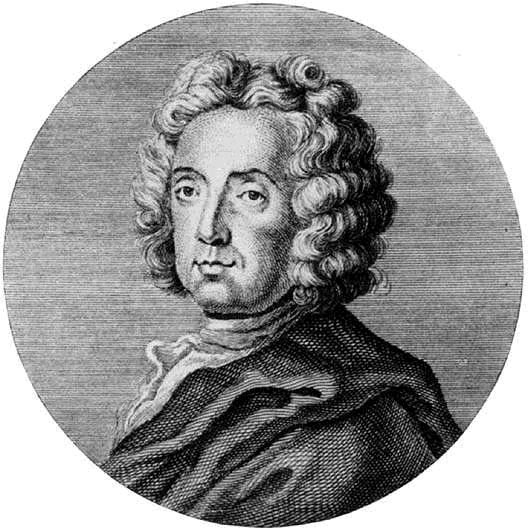<Back to Index>
- Naturalist Gilbert White, 1720
- Composer Giovanni Battista Bononcini, 1670
- 1st Prime Minister of Sweden Louis Gerhard De Geer, 1818
PAGE SPONSOR

Giovanni Battista Bononcini (18 July 1670 – 9 July 1747) was an Italian Baroque composer and cellist, one of a family of string players and composers. His father, Giovanni Maria Bononcini (1642 – 78), was a violinist and a composer.
Bononcini was born in Modena, Italy, the oldest of three sons. (His younger brother, Antonio Maria Bononcini, was also a composer.) Giovanni Battista studied the cello in Bologna. He then served as maestro di cappella at San Giovanni in Monte and afterwards worked in Milan, Rome, Vienna and Berlin. From 1720 to 1732 he was in London, where for a time his popularity rivaled Handel's. (Their competition inspired the epigram by John Byrom that made the phrase "Tweedledum and Tweedledee" famous.) Bononcini left London after charges of plagiarism were proven against him. He died in poverty in Vienna, leaving behind a wife and 4 children.
He published his earliest works for the cello, his instrument, in 1685 in Bologna. His other works include a number of operas, masses, and a funeral anthem for the Duke of Marlborough. One of his operas, Xerse, parodied material in an earlier setting of that opera by Francesco Cavalli. This included the aria Ombra mai fu. Bononcini's Xerse was in turn later adapted by George Frideric Handel with a third (and best known) version of Ombra mai fu.